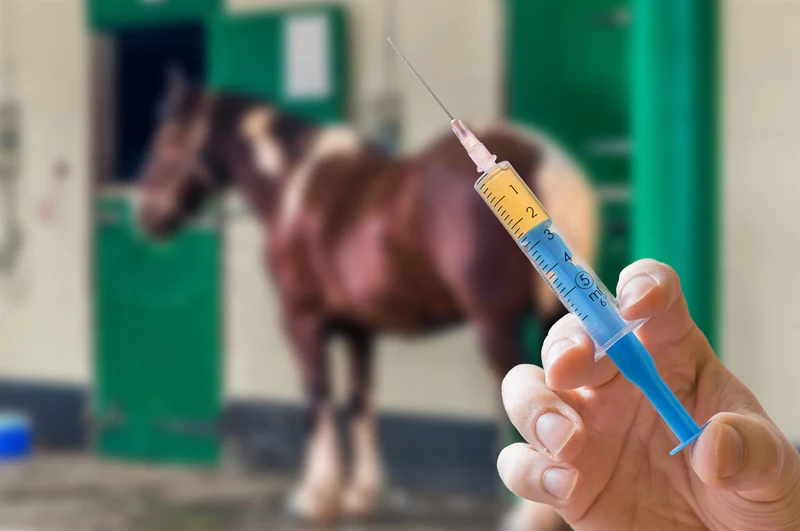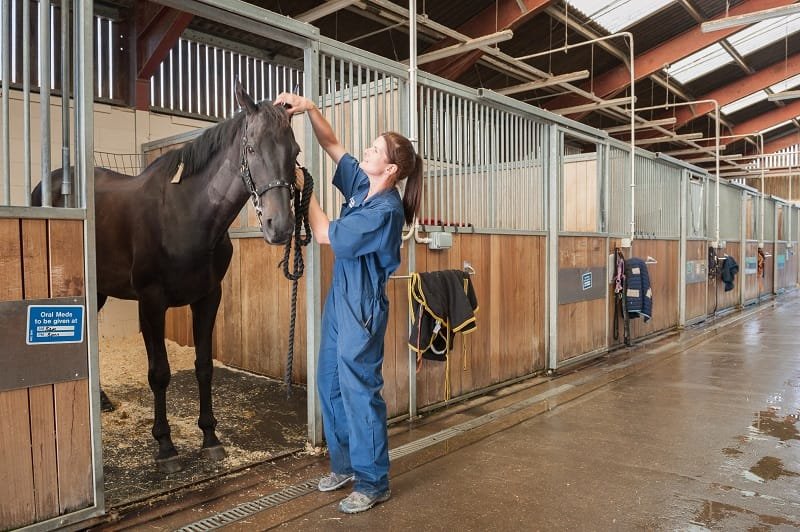Caring for a horse is a rewarding experience, but it comes with its own set of responsibilities.
One of the most crucial aspects of horse care is ensuring that your horse receives regular veterinary check-ups. Just like humans, horses need routine medical care to maintain their health and well-being. Here’s why regular veterinary visits are essential for your equine friend.
1. Preventive Health Care
Regular vet visits are key to preventive health care. Routine examinations can help catch potential health issues before they become serious problems. Your veterinarian will conduct thorough physical exams, check vital signs, and assess your horse’s overall condition.
- Vaccinations: Horses are susceptible to various diseases, some of which can be life-threatening. Vaccinations protect against illnesses like equine influenza, tetanus, and West Nile virus. Your vet will create a vaccination schedule tailored to your horse’s specific needs.

- Dental Care: Horses’ teeth continuously grow, and regular dental check-ups are necessary to prevent issues like colic or difficulty eating. A vet can perform routine dental floating, which smooths out sharp edges on teeth, ensuring your horse can chew properly.

2. Monitoring Growth and Development
For young horses, regular vet visits are crucial for monitoring growth and development. A veterinarian can identify any developmental issues early on, allowing for timely intervention. They can also provide guidance on nutrition and exercise tailored to your horse’s age and stage of life.
3. Parasite Control
Internal and external parasites can pose significant health risks to horses. Regular veterinary visits allow for effective parasite management. Your vet will recommend deworming schedules based on fecal egg counts and the specific needs of your horse.
- Tailored Treatments: Not all horses have the same parasite exposure, so your vet will provide a customized plan that suits your horse’s lifestyle and environment. This helps prevent issues such as colic and anemia, which can arise from heavy parasite infestations.
4. Early Detection of Health Issues
One of the most significant advantages of regular vet check-ups is the early detection of health problems. Horses are prey animals and often hide signs of illness or discomfort until they are quite severe. A veterinarian is trained to spot subtle signs of distress that you might miss.
- Blood Tests and Diagnostics: Your vet may recommend routine blood work to monitor organ function, check for infections, and assess overall health. Early detection through these tests can lead to more effective treatment options and better outcomes.
5. Keeping Up with Farrier Care
Hoof care is critical for a horse’s health. Regular vet visits often coincide with farrier appointments, ensuring that hoof care is integrated into your horse’s overall health plan.
- Foot Health Monitoring: Your vet can assess the condition of your horse’s hooves and recommend necessary treatments or shoeing practices. Proper hoof care prevents lameness and supports your horse’s performance and comfort.
6. Maintaining Performance Levels
Whether your horse is a competitive athlete or a beloved companion, maintaining optimal health is vital for performance. Regular vet visits help ensure your horse is in peak condition.
- Muscle and Joint Care: Vets can assess your horse’s musculoskeletal health, providing advice on joint supplements, exercise regimens, and rehabilitation if needed. This proactive approach helps prevent injuries and keeps your horse performing at its best.
7. Building a Strong Relationship
Regular veterinary visits foster a strong relationship between you, your horse, and your veterinarian. This rapport allows for open communication about any concerns you may have regarding your horse’s health or behavior.
- Education: Your veterinarian can provide valuable insights on nutrition, exercise, and general horse care. The more you learn about your horse’s needs, the better equipped you will be to provide optimal care.
8. Emergency Preparedness
Finally, having a regular vet means you have a trusted professional to turn to in case of an emergency. Familiarity with your horse’s medical history allows the vet to respond more effectively to urgent situations.
- Emergency Plans: Your vet can help you create a plan for emergencies, including contact information and protocols for various scenarios. Being prepared can save valuable time and ensure your horse receives prompt care.




